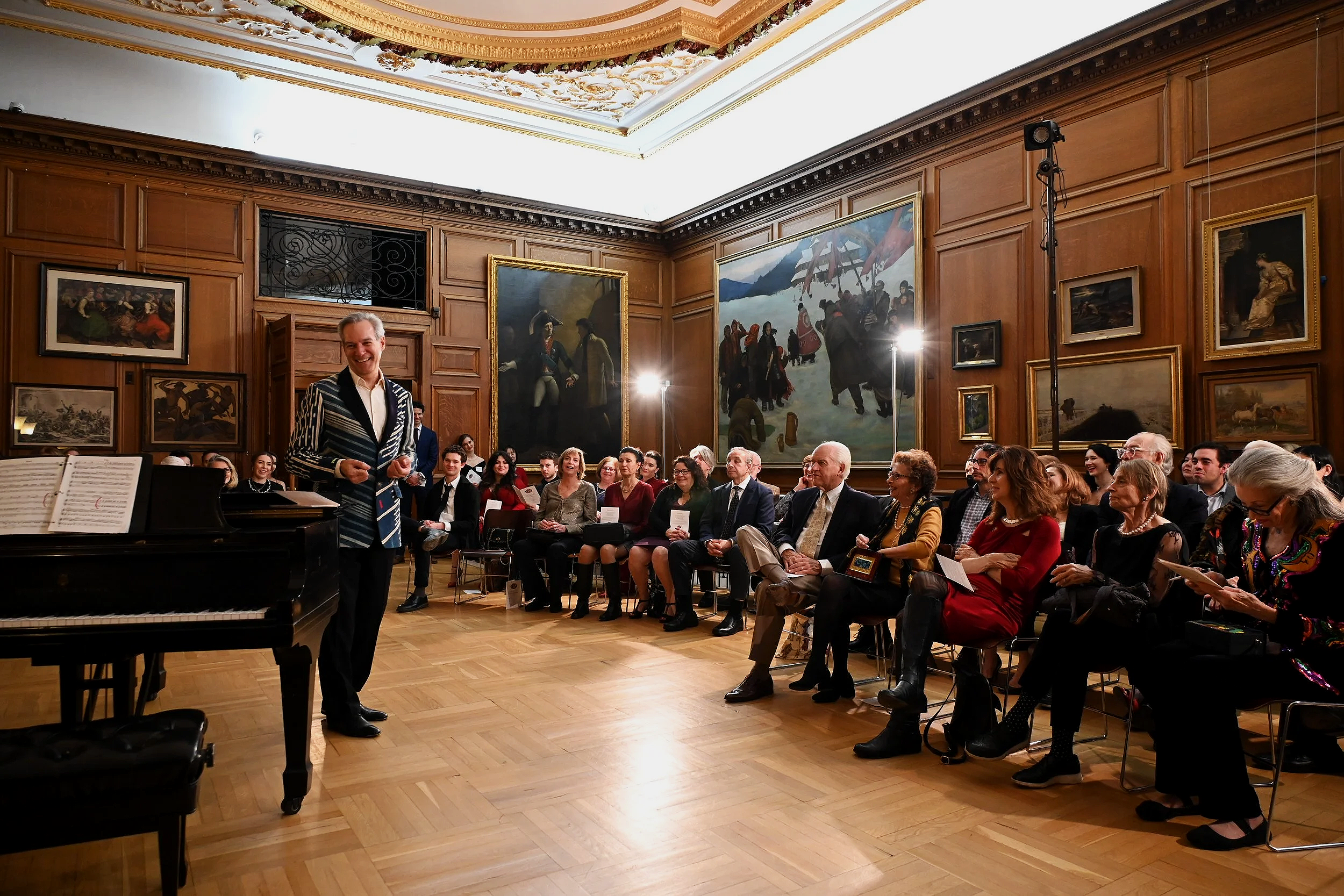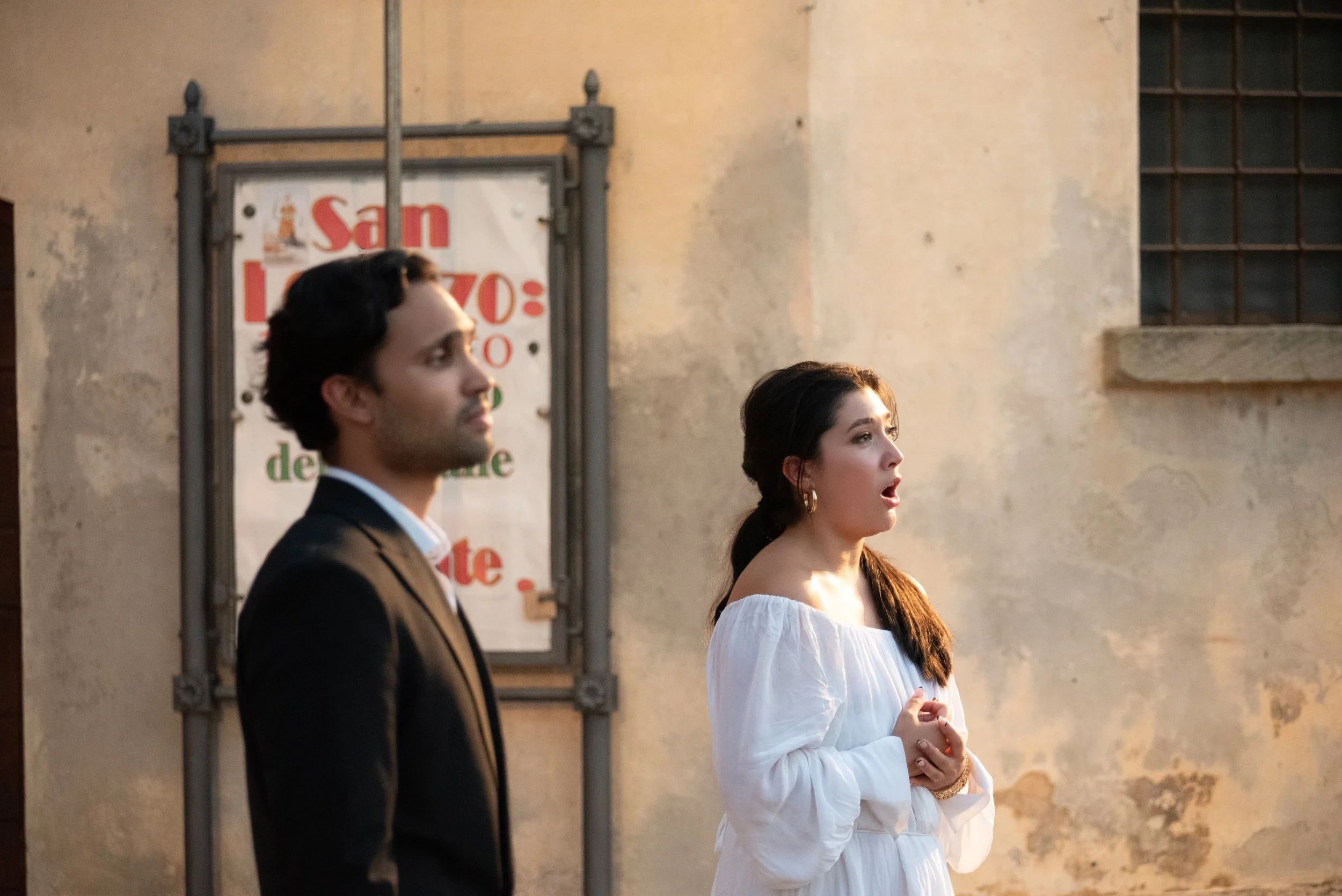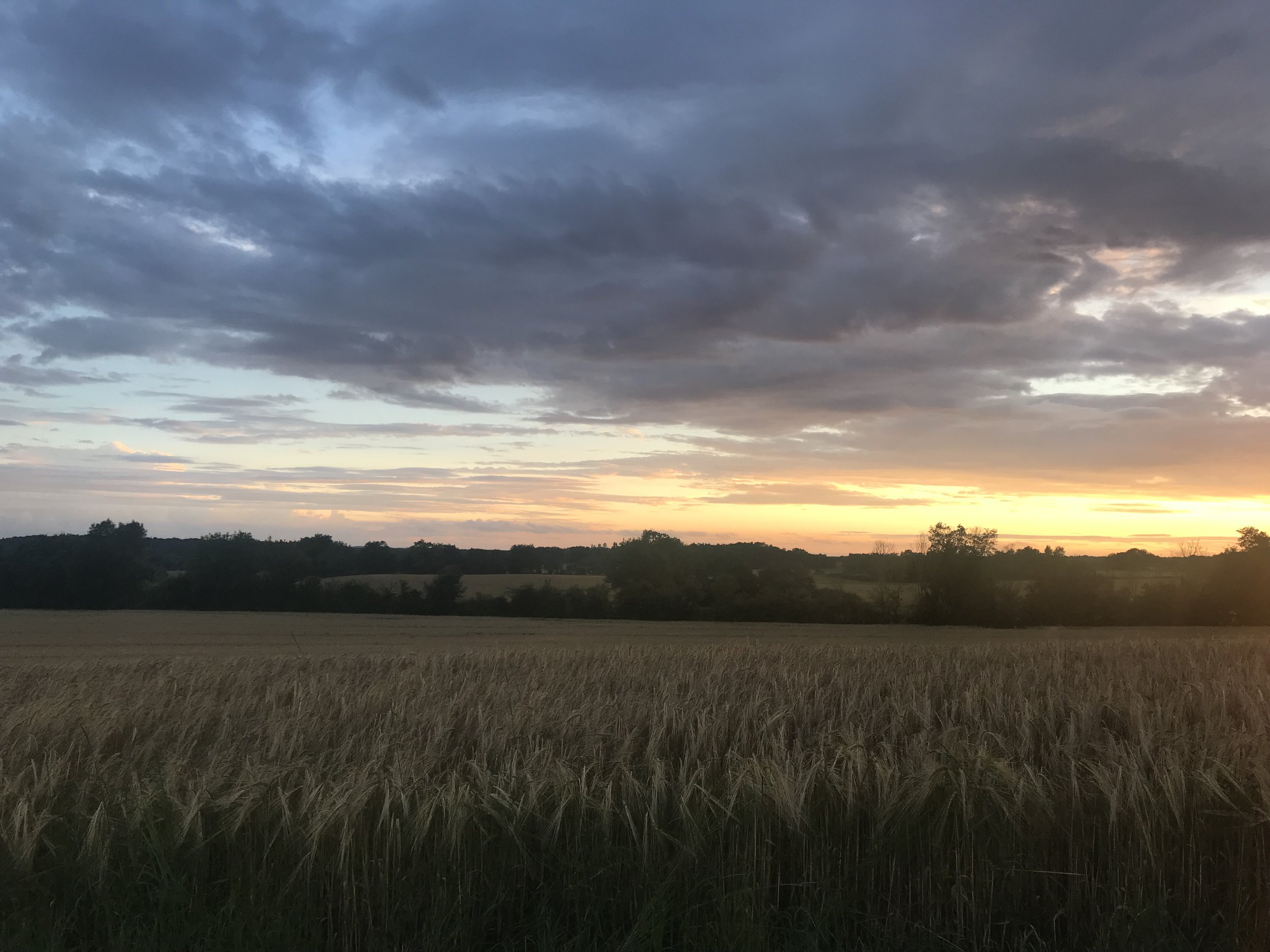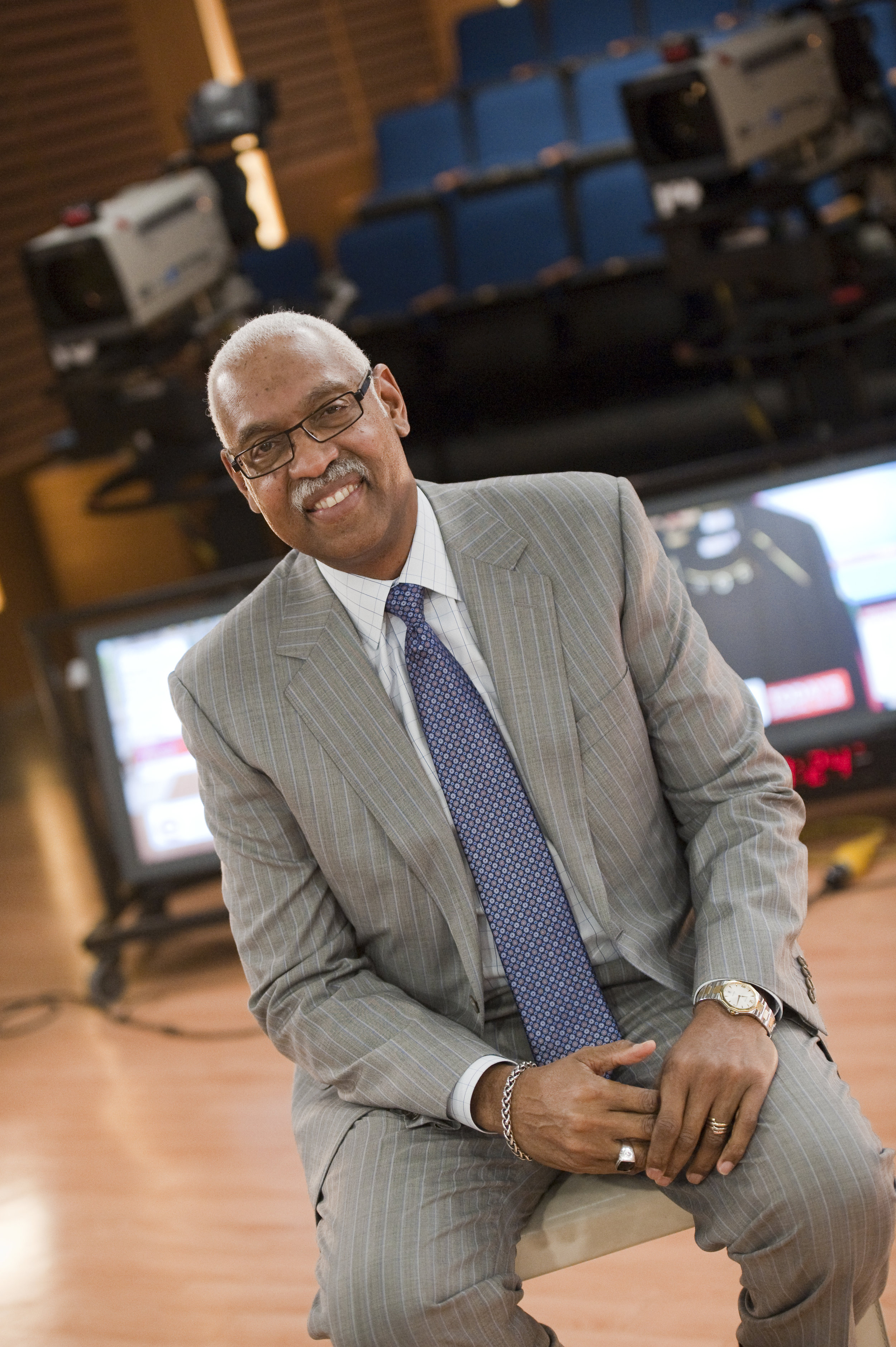From the program’s beginnings in 2012 to the year 2014, we had the great honor of having the distinguished singer and teacher Michel Sénéchal to offer daily coachings to the participants, sharing his vast experience and passion for the art of singing in French. An undisputed master of the French repertoire, he was intimately connected to the great composers such as Charpentier, Hahn, Honegger, Messian, and Poulenc, as well as the renowned master teacher Nadia Boulanger. A student at the Paris Conservatory along side Régine Crespin and Gabriel Bacquier, he studied with the great French baritone Camille Maurane, as well as Gabriel Pollet, the last disciple of Fauré, Duparc, Satie and Debussy.
Michel Sénéchal led a brilliant career, starring on the world’s most prestigious stages including the Paris, Vienna, Salzburg, Berlin, Milan, London, Bruxelles, Moscow, Madrid, Barcelona and San Francisco opera houses as well as the Metropolitan in New York. He can be heard on over a hundred recordings. Renowned for his impeccable style and dramatic presence, he was one of Karajan’s preferred singers. The maestro invited him to perform in Mozart’s greatest operas in Vienna, where he also took on many other prominent roles alongside the most celebrated singers of our times, under the most renowned conductors.
Michel Sénéchal was born in Paris. During his childhood, he sang as an alto in the choir at his grade school and at his church; then after a period of classical study, he entered into the Conservatoire National Supérieur de Musique de Paris where he studied voice with Gabriel Paulet. He won the 1er Prix de Chant in 1950 and was immediately engaged with the Théâtre Royal de la Monnaie in Brussels where he made his début in Mârouf. Two years later, he was the [star/high? brillant laureat] in the Concours International of Geneva. In 1958, he made his débuts at the Paris Opera and at l’Opéra-Comique where he excelled at his chosen repertoire: Mireille, Mignon, Lakmé, Il Barbiere di Siviglia, Les Indes Galantes, Cosi Fan Tutte, Le Compte Ory, Platée, L’Incorrazione di Poppea...
While his light tenor voice was perfectly suited to leading roles of Mozart and Rossini which he sang in his early career, he dedicated the second half of his career to the repertoire for character tenor. Thanks to his unique artistry and exceptional humor, he became the premiere performer of these roles. An unforgettable interpreter of the [heros/heroine/title characters] of Jean-Philippe Rameau, he was saluted by the public and the press as the most beautiful interpreter of Platée. In international news, he was remarked for his musicality and his [investment scenic/stage presence/character] in the title roles of Compte Ory of Rossini and of Platée, but equally those of Georges Brown from La Dame Blanche, of L’Innocent in Boris Godounov, and of Gonzalve in L’Heure Espagnole.
He sang alongside Régine Crespin, Andréa Guiot, Robert Massard, Jane Rhodes, Gabriel Bacquier, Roger Soyer, Denise Dupleix, Michel Roux, and Placido Domingo, Renée Felming, Mirella Freni, Elisabeth Schwarzkopf, Luciano Pavarotti and many other illustrious artists.
He performed in the world’s premier opera theaters: At Vienna Opera, he was one of the few French tenors to have sung Tamino in Die Zauberflöte, but also Le Compte Ory, L’Heure Espagnole, L’Enfant et les Sortilèges, Il Matrimonio Segreto. At Madrid Opera, he sang Le Nozze di Figaro. At the Metropolitan Opera, from 1982 onward he performed regularly in Les Contes d’Hoffman, Le Nozze di Figaro, Falstaff, La Forza del Destino, Eugène Onéguine, Andrea Chenier, La Fille du Regiment, Manon. Since 1989 he sang at the San Francisco Opera in Capriccio, Le Nozze di Figaro, La Fille du Regiment, Andrea Chenier, Der Rosenkavalier, Russalka, Madama Butterfly, Manon, and Les Contes d’Hoffman. He also participated in productions in the most prominent international festivals, such as Aix en Provence (Platée), Glyndebourne and Salzbourg where he made a revered interpretation of Herbert Von Karajan.
From his extensive discography, we note Dialogues of the Carmelites, Chérubin of Massenet, L’Heure Espagnole and L’Enfant et les Sortilèges, Platée, L’Enfance du Christ, Le Compte Ory, Mireille of Gounod, Roméo et Juliette of Berlioz, Anthologies of the Mélodies of Francis Poulenc with Dalton Baldwin; and most notably, the recording of La Dame Blanche.
Established as an absolute master of French singing, he was professor and director at the Opéra de Paris School for fifteen years, being instrumental in the evolution of many of today and tomorrow’s stars including Roberto Alagna, Nathalie Dessay, Uria Monson, Ludovic Tésier and Renée Fleming.
He offered classes at Columbia University and New York’s Mannes College. He also gave master classes to young singers at the Metropolitan Opera and San Francisco Opera and taught at the International Vocal Arts Institute in Montreal.
After making his debut in 1950, he continued to be active for over 60 years as a performer and master teacher.




















